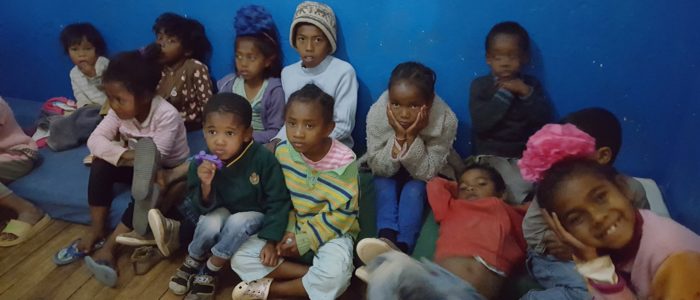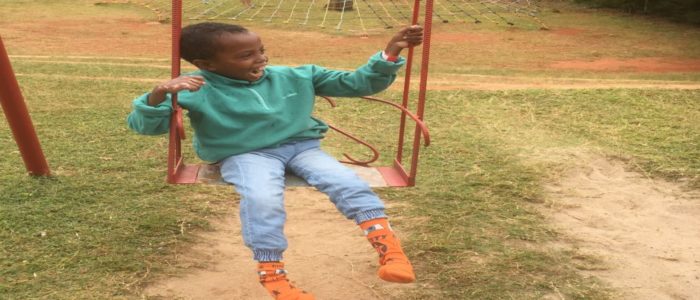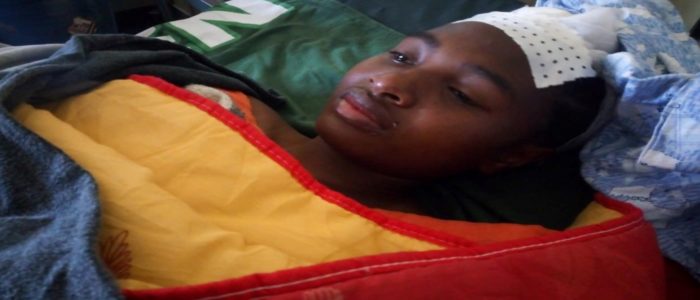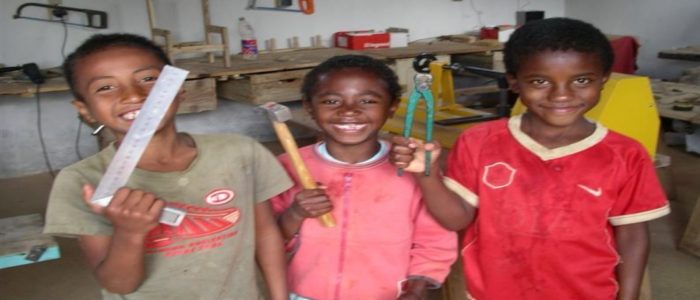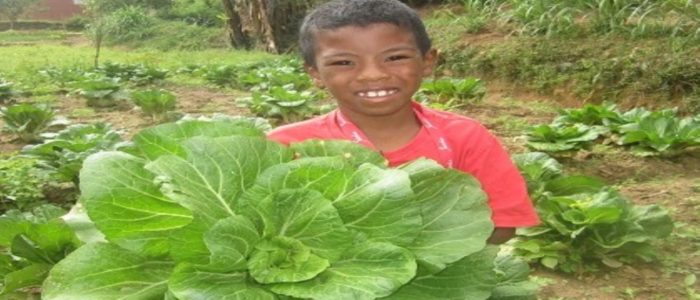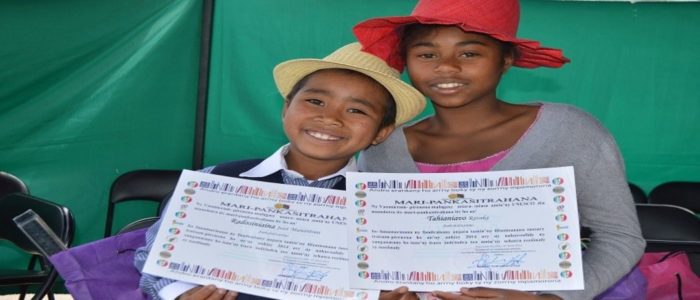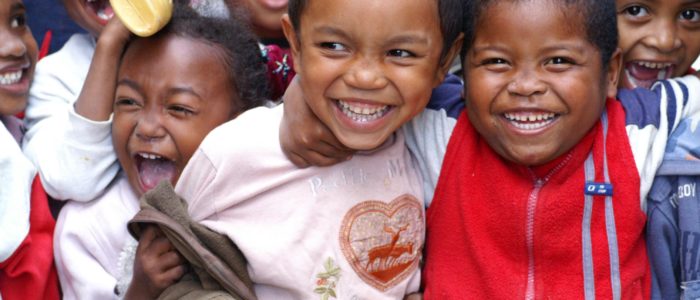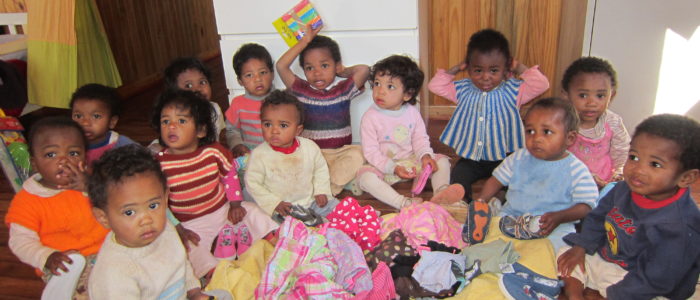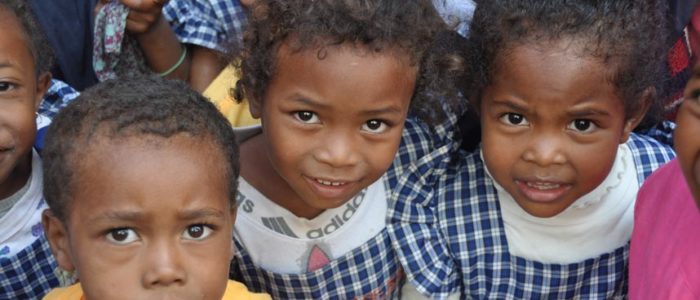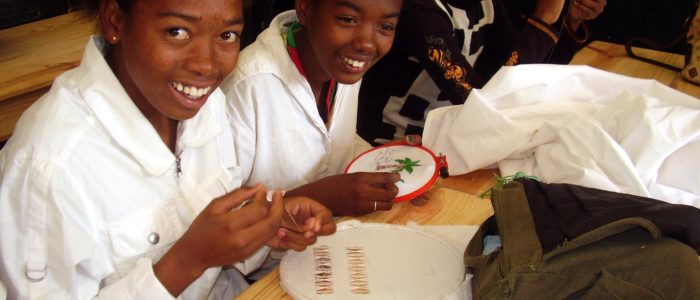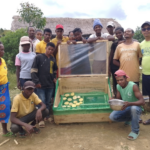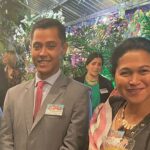MfM works to transform the lives of vulnerable children in and around the capital. Orphaned, abandoned, abused and homeless children are given shelter, food, healthcare, education, water, sanitation and loving care. Children and their families receive long-term support to help them overcome the root-causes of their destitution. Children on remand and in custody are also given training and support to re-start their lives.
As a charity who has supported vulnerable children for over 30 years, we believe that the best place for children is with their families. In cases where residential care is necessary we expect high standards of care and a community based approach, which promotes integration into the community.
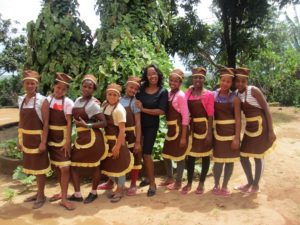
Akany girls enjoying their training in Hospitality
MfM welcomes the current political shift away from orphanages towards family-focussed solutions that put the child’s needs at the heart. Money for Madagascar has a long-standing commitment to protecting and enabling vulnerable children. Wherever possible we support projects that help families to stay together and which try to tackle the root causes of children’s destitution. Madagascar is a desperately poor country where poverty kills one in ten infants a year. To protect and enable vulnerable children in Madagascar it is necessary to tackle both rural an urban poverty. MfM works to prevent destitution as well as help destitute children to rebuild their lives. Wherever possible a child is supported to stay with or to re-join their family.
By investing in education, health, sanitation and nutrition in 60 rural communities, we try to reduce infant mortality and improve the quality of life and prospects of Malagasy children. Currently thousands of children are sent to the capital each year in an attempt to escape rural poverty. But many of these children find themselves in far worse situation in the capital. Some are mis-treated as maids and are then sent to prison, many live in shanties or even on the streets. Some resort to begging and prostitution.
Whilst MfM invests heavily in a programme to strengthen and enable rural Malagasy children, we do not turn a blind eye to those who have become destitute in the capital. We support the vital work of both day centres and residential centres who are helping homeless, abused and orphaned children to get back on their feet. The family plays a vital role in all the centres that we support. All centres provide food, medical care, education and emotional support. Day centres like Centre Fihavanana provide daily support to homeless and vulnerable children, who return to their families every night. Where possible support is also offered to the parents to help them to tackle their problems and move towards getting secure accommodation. We strive to enable destitute children to regain their place as citizens with rights. Helping procure birth certificates and providing accelerated catch-up classes are key steps in getting them into mainstream schools. Longer-term sponsorship can help them stay in school and achieve their diplomas. In some cases, residential care is necessary. If the Malagasy courts deem that a child is acutely vulnerable, then they can place them in an approved residential centre.
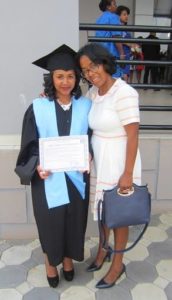
One of our Akany graduates
In December 2019 the UN rightly criticised many orphanages that had become silos for abandoned children. In many cases they found that the children had families, who could have provided more loving care than an orphanage. However, this is not the case with the Akany Avoko residential centres that MfM supports. From the moment that a child arrives at one of the Akany centres, the search begins to find the child’s relatives. In some cases (such as abuse), it may not be appropriate for a child to re-join their family. But, wherever suitable, the Akany centres work hard to restore family relationships, so it may be possible for a child to return home. For those children who have nowhere to go, then the best possible care must be provided. Occasionally fostering or adoption might be possible. But for most orphans and totally abandoned children, residential care is the only option. It is therefore essential that the residential centres provide the best possible care, where children are able to develop their social and emotional confidence. To help children become well-rounded and engaged citizens, children living at the Akany residential centres engage fully with the local community. They are members of the church choir, and the scouts, they join sporting tournaments, go out to the village school and go on holidays and outings to have fun and discover their beautiful country. They also enjoy making friends with both local and international volunteers and visitors, who can help the core Malagasy staff by providing additional fun activities like sport, music, art and crafts. Two Akany centres have separate cafes, craft shops and accommodation for volunteers/ guests. These facilities provide vital income to the centres as well as providing valuable training and work experience opportunities for the older teenagers. The children and young people are supported by the Akany centres until they are able to live and work independently. This may include support through university education, vocational training or business start-up. Even after graduates leave, many feel they still belong to the family of the Akany centre. Some come back for reunions and celebrations, or to introduce their fiancée or their new-born child. Others stay in touch regularly, for example selling their crafts to tourists through the Akany centre shops. Some eventually set up homes in the two Habitat villages created by Akany Avoko.
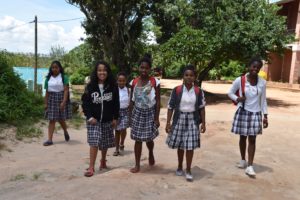
Akany girls returning from school
MfM is committed to protecting and enabling Madagascar’s most vulnerable children. Wherever possible we start with supporting children to flourish in their home community with their family. Where this is not possible, we are committed to supporting children in centres that provide the highest quality of care and which enable children to build meaningful friendships with each other, with staff and with people in the wider community.
MfM currently supports three residential centres, four day centres and two juvenile prison wings.
Click on the ‘menu’s below’ to find out more:
Residential Centres at:
Day Centres at:
Juvenile Prison Wing at:
Over One Thousand children benefit from this programme every year.
MfM believes in investing in children to help them reach their potential. We also invest in the carers so they can be skilled, motivated and caring . Staff training workshops this year have addressed: child protection, child development, multi-sector approaches, and ecological and income generating activities.
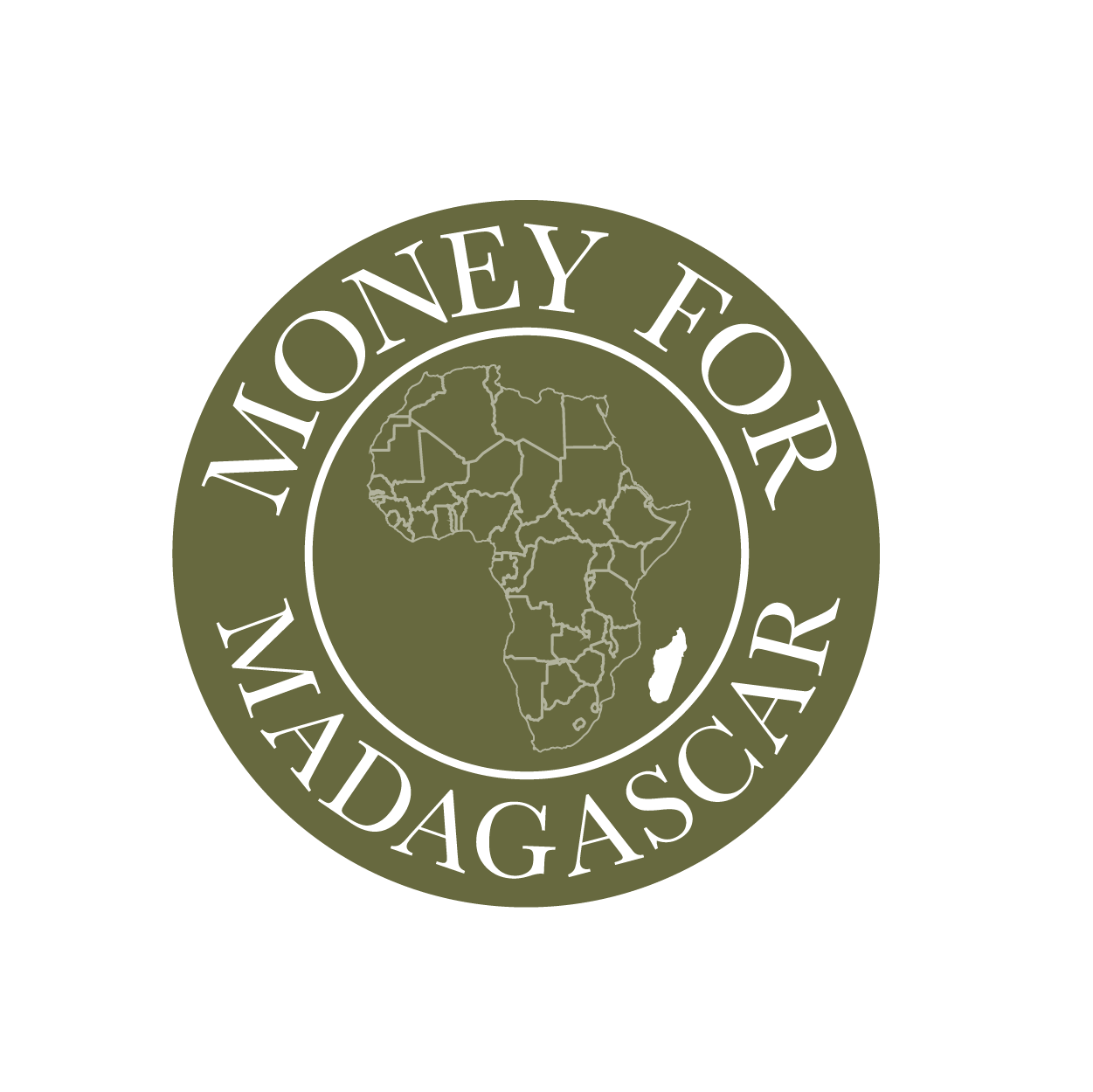

 Cymraeg
Cymraeg
